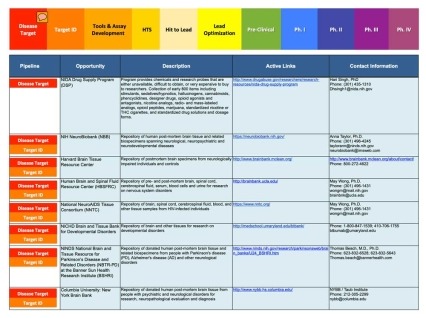
The National Institutes of Health (NIH) is the largest source of funding for medical research in the world, funding thousands of scientists and supporting many innovative training programs and funding mechanisms that foster scientific creativity and exploration. This includes specific programs that can help small businesses move their product through the development cycle. Programs span from identifying novel disease targets through Phase IV clinical trials. This PDF outlines NIH’s Resources for Translational Neuroscience with web links and contact information:
Enhancing Rigor and Reproducibility
One of the biggest challenges in product development is ensuring that the foundational data upon which new advances are based are reliable and reproducible. Reliability and reproducibility are especially important in the preclinical findings of new therapies and diagnostics as any issues or mistakes introduced at this stage will negatively impact later stage development. To help applicants create rigorous and reproducible study designs, NIDA:
- Issued NOT-DA-14-007 “Improving Reporting of Research Methods and Results in Translational Addiction research Involving Animals is a NIDA Commitment.”
- Provided funding for the development of novel software tools to help design proper animal studies and provide transparency when there is disagreement on published results in peer review publications.
- Joined NIGMS (RFA-GM-15-006) and supported the Society of Neuroscience (SfN) project, “Promoting Awareness and Knowledge to Enhance Scientific Rigor in Neuroscience.” Under the project, SfN partnered with leading neuroscientists to offer a series of webinar-based training modules and workshops that address the scientific, technical, and interpersonal skills necessary to tackle issues of scientific rigor in neuroscience. These free webinars can be found here:
- Webinar #1: Improving Experimental Rigor and Enhancing Data Reproducibility in Neuroscience
- Webinar #2: Best Practices in Experimental Design and Execution
- Webinar #3: Best Practices in Post-Experimental Data Analysis
- Webinar #4: Best Practices in Data Management and Reporting
- Webinar #5: Statistical Application in Neuroscience
- Webinar #6: Experimental Design to Minimize Systemic Biases: Lessons from Rodent Behavioral Assays and Electrophysiology Studies
- Workshop #1: Tackling Challenges in Scientific Rigor: The (Sometimes) Messy Reality of Science
